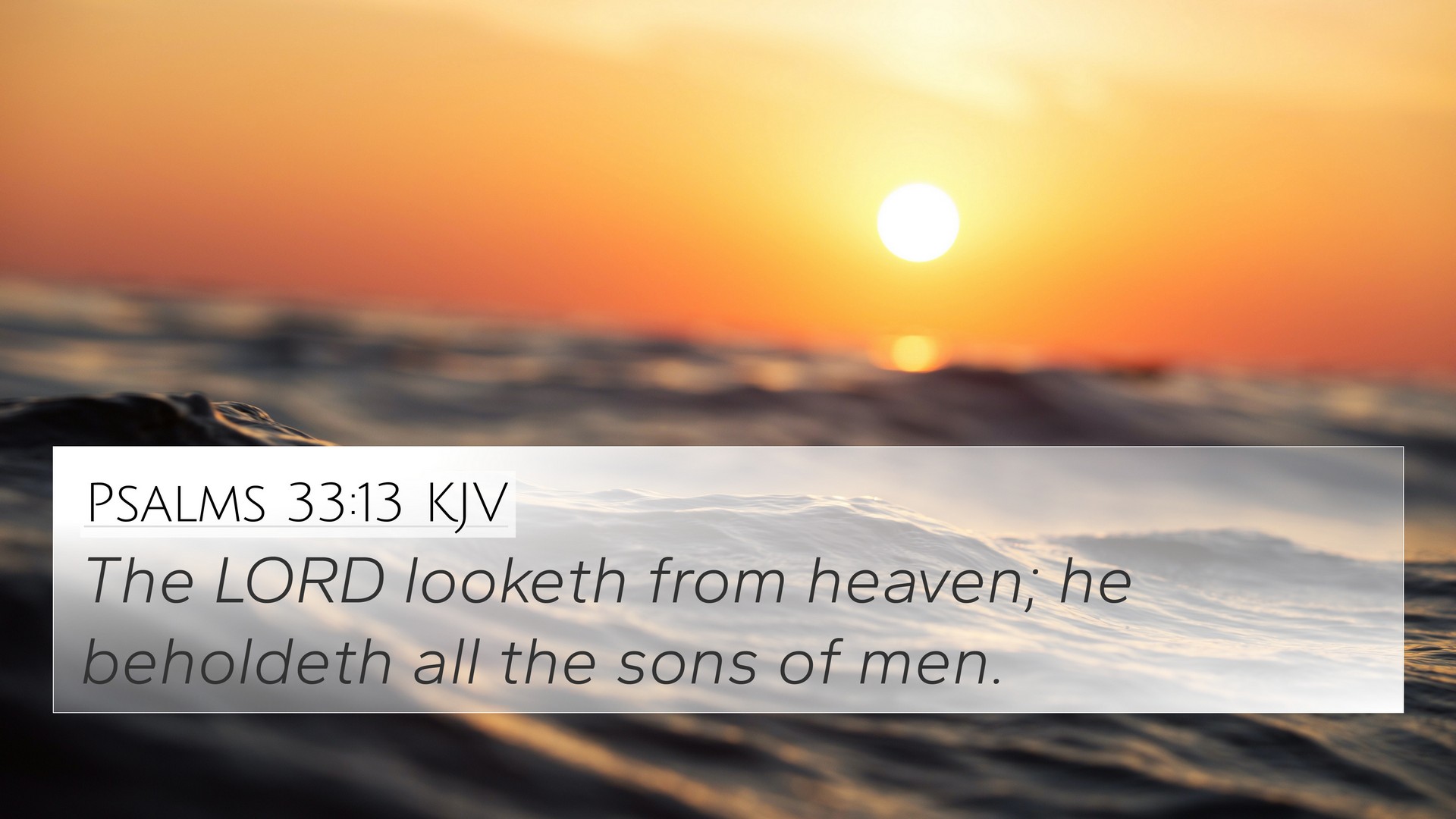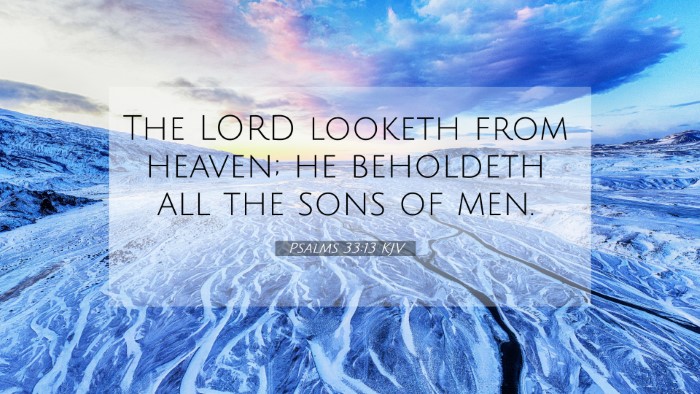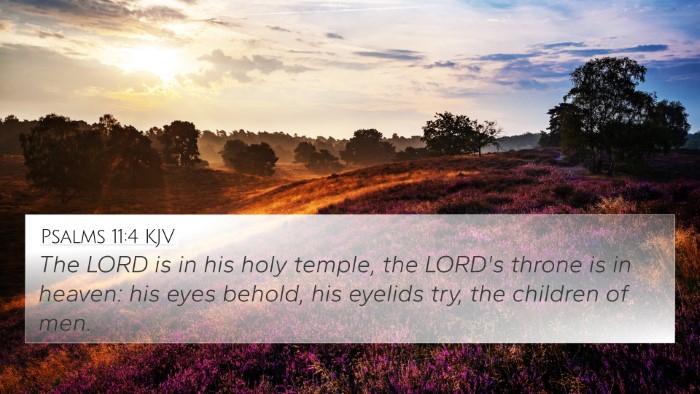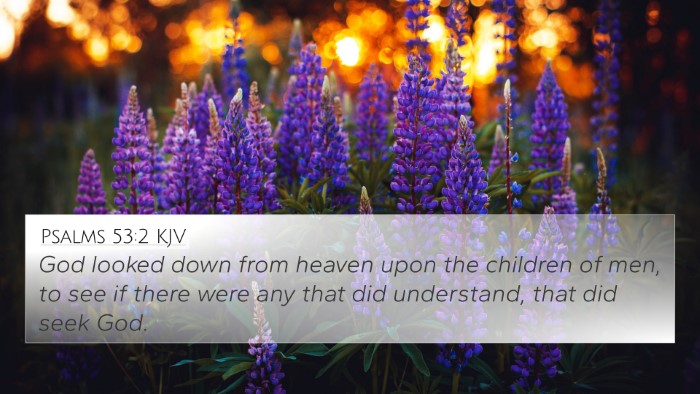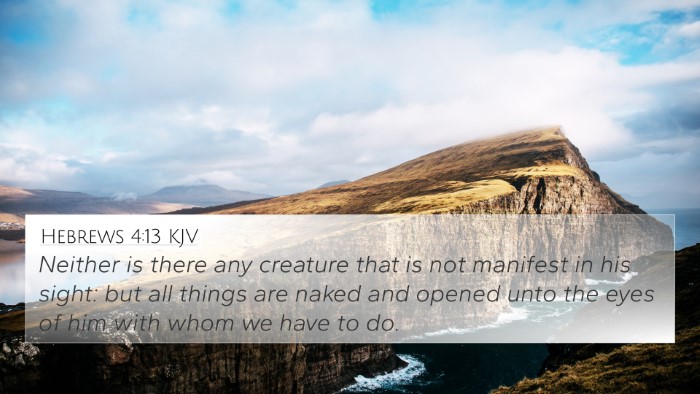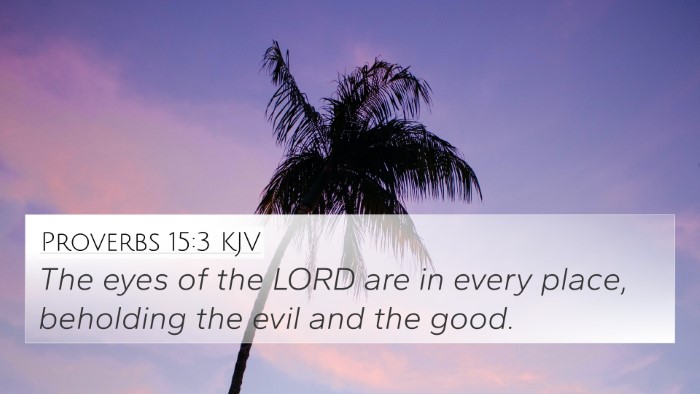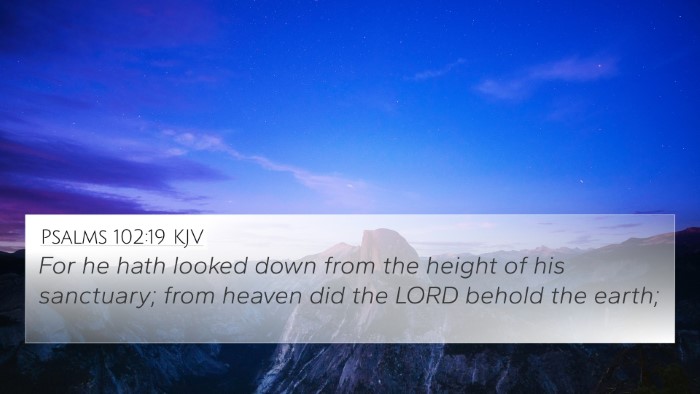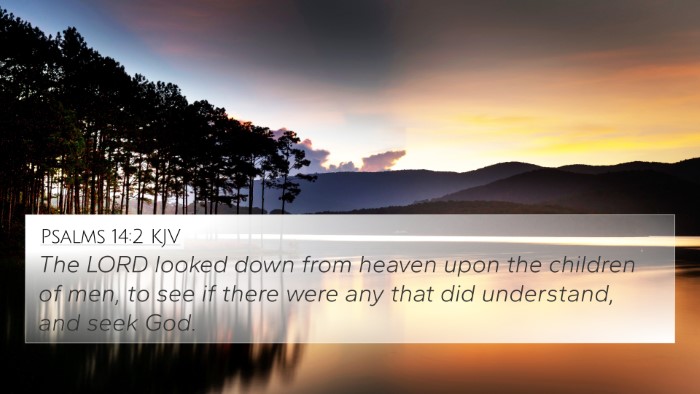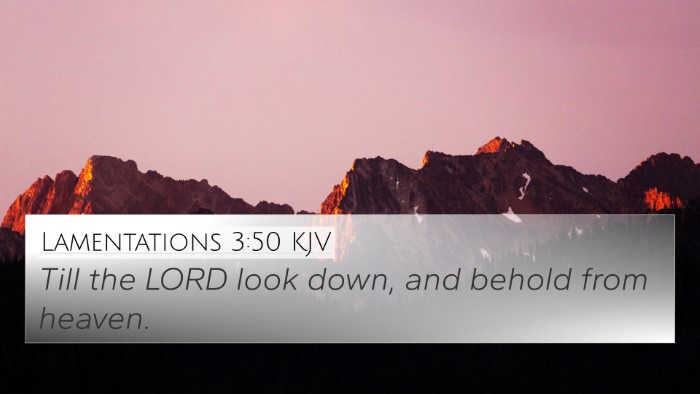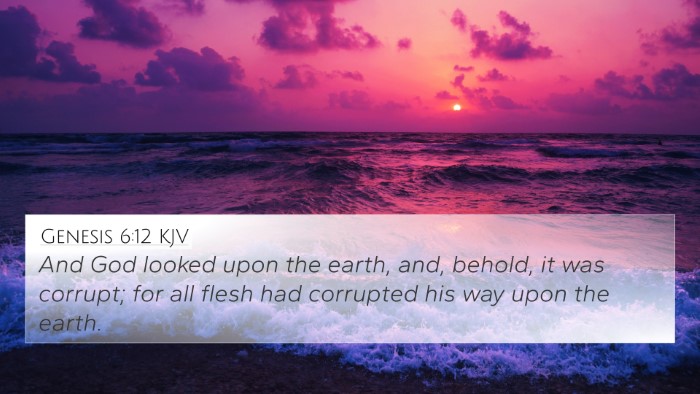Psalms 33:13 - Summary and Commentary
Psalms 33:13 states, "The Lord looks down from heaven; He sees all the children of men." This passage serves as a profound reminder of God's omniscience and His intimate involvement with humanity. Below, we provide an analysis combining insights from notable public domain commentaries to enrich the understanding of this verse.
Meaning of Psalms 33:13
The overarching theme of this verse is the awareness and oversight God has over all human affairs. Here are some key insights:
-
Divine Observation: According to Matthew Henry, this verse emphasizes that God is not distant but observant of all His creations. His gaze is constant and encompasses the entirety of humanity. This reinforces the idea that God is aware of both our actions and thoughts.
-
Universal Scope: Albert Barnes suggests that this observation extends to all people, regardless of status or geography. God’s knowledge is universal, signifying that the divine perspective transcends earthly boundaries and divisions.
-
Motivation for Righteous Living: Adam Clarke interprets this knowledge as a powerful motivator for moral conduct. Recognizing that God observes our behavior encourages believers to live righteously, knowing their actions are seen by the Almighty.
Cross-Referencing Biblical Texts
This verse can be linked to various other scriptures that reinforce its themes of God’s omnipresence and constant supervision. Here are some notable cross-references:
- Hebrews 4:13: “And there is no creature hidden from His sight, but all things are naked and open to the eyes of Him to whom we must give account.”
- Proverbs 15:3: “The eyes of the Lord are in every place, keeping watch on the evil and the good.”
- Jeremiah 23:24: “Can anyone hide himself in secret places, so I shall not see him? says the Lord; Do I not fill heaven and earth?”
- Psalm 139:1-4: “O Lord, You have searched me and known me... You understand my thought afar off.”
- Job 34:21: “For His eyes are on the ways of man, and He sees all his steps.”
- 1 Peter 3:12: “For the eyes of the Lord are on the righteous, and His ears are open to their prayers; but the face of the Lord is against those who do evil.”
- Psalm 94:7-8: “Yet they say, 'The Lord does not see, nor does the God of Jacob understand.’”
- Matthew 6:4: “...and your Father who sees in secret will reward you openly.”
- Acts 15:18: “Known to God from eternity are all His works.”
- Luke 12:7: “But the very hairs of your head are all numbered. Do not fear therefore; you are of more value than many sparrows.”
Thematic Connections
The verse connects with larger biblical themes, such as:
- God's Sovereignty: Throughout scriptures, God’s absolute authority and knowledge are affirmed, showing He is always in control.
- Moral Accountability: The idea that we are observed instills a sense of accountability for our actions and thoughts.
- Encouragement in Prayer: Knowing God sees us encourages believers to come to Him in prayer, as reflected in 1 Peter 3:12.
Exploring Biblical Cross-References
Engaging in cross-referencing can deepen one’s understanding of Psalms 33:13 and its implications. Here are some tools and methods:
- Bible Concordance: A useful resource that allows individuals to find words and their occurrences throughout the Bible.
- Bible Cross-Reference Guide: Guides that visually map connections between different verses can provide insight into how passages relate.
- Cross-Reference Bible Study: Methods that involve studying scripture correlations can reveal deeper meanings.
- Identifying Connections between Old and New Testament: Many themes, such as redemption and righteousness, continue through both testaments.
- Comparative Study of Pauline Epistles: Analysis of similar themes found within Paul's letters can enhance understanding of righteousness and God’s law.
Conclusion
Psalms 33:13 encapsulates a core truth about God’s nature: His omniscience and personal involvement in our lives. As believers engage with this verse and its cross-references, they are encouraged to reflect on their lives and recognize the divine presence watching over them. This understanding not only fosters accountability but inspires a deeper relationship with God.
